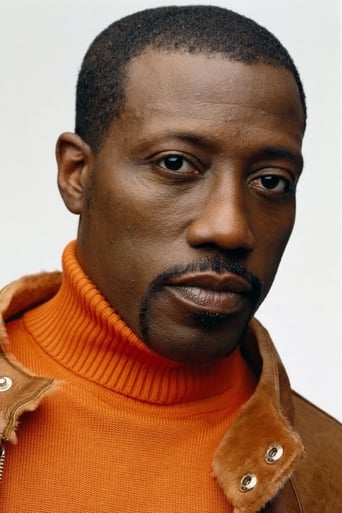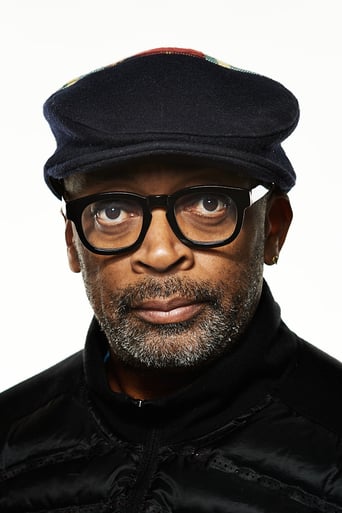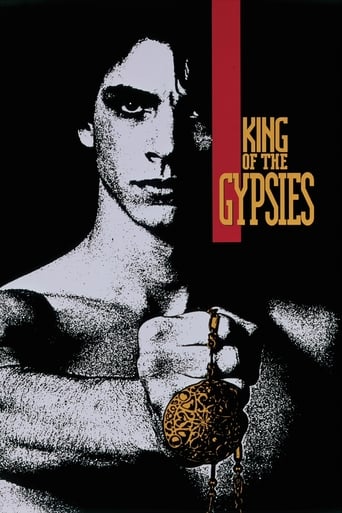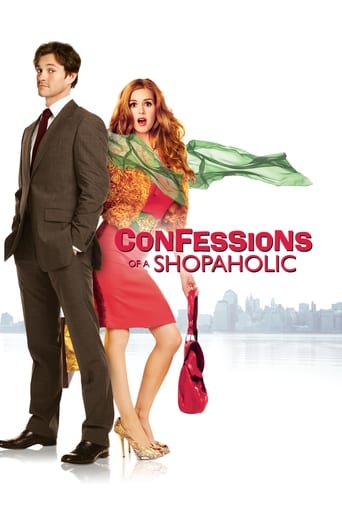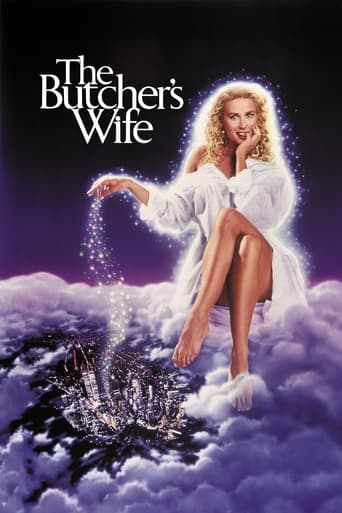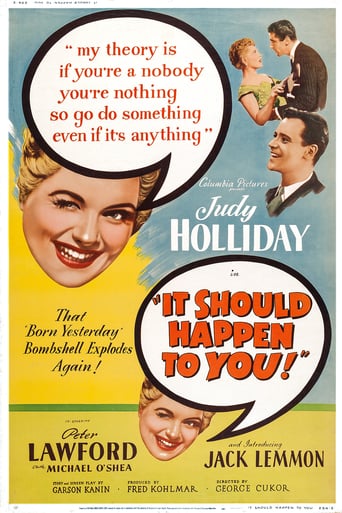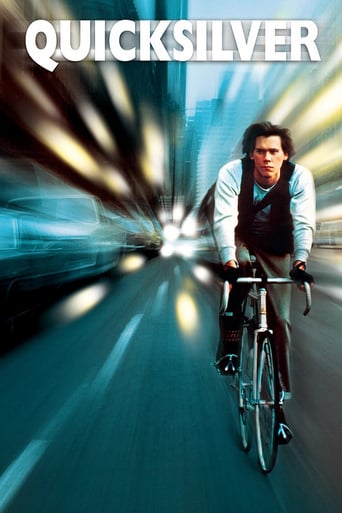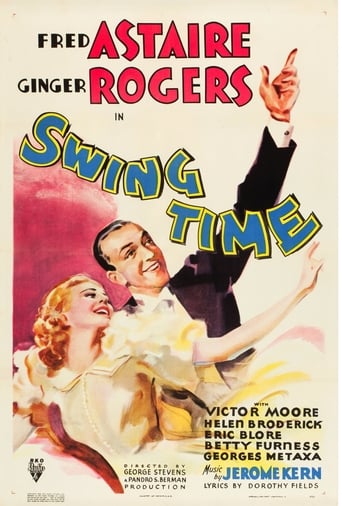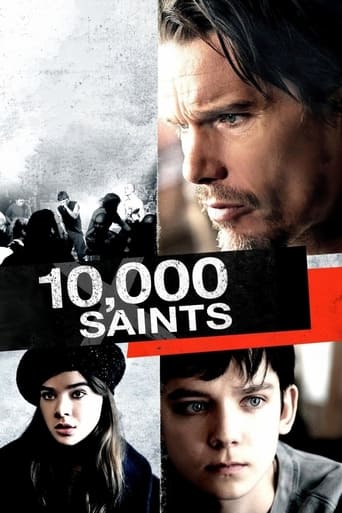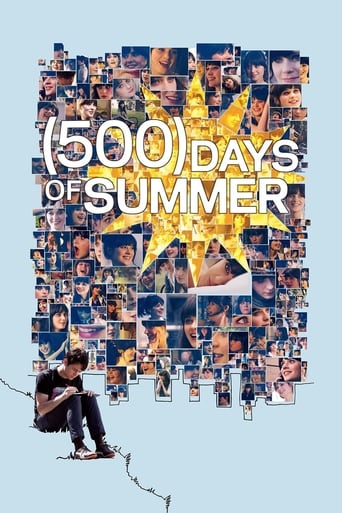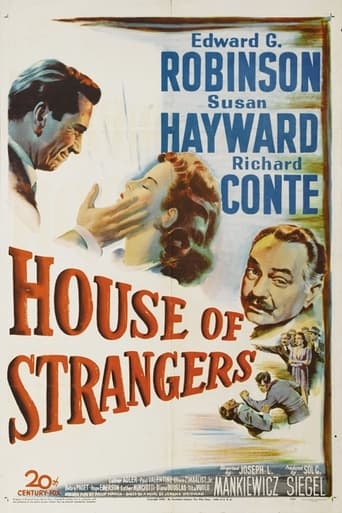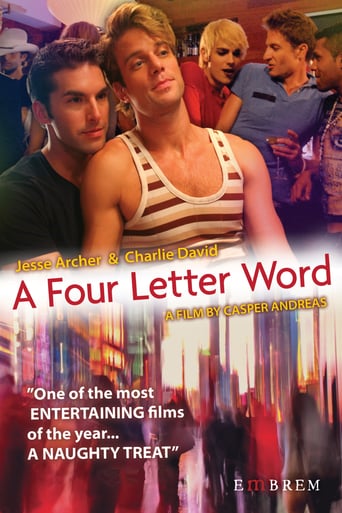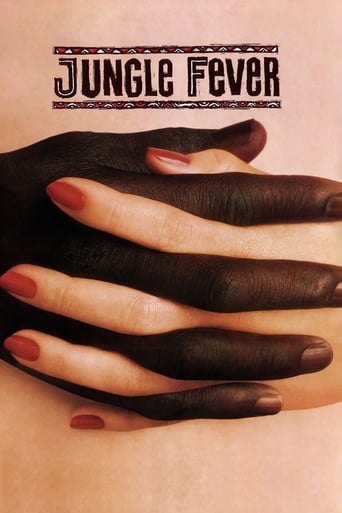
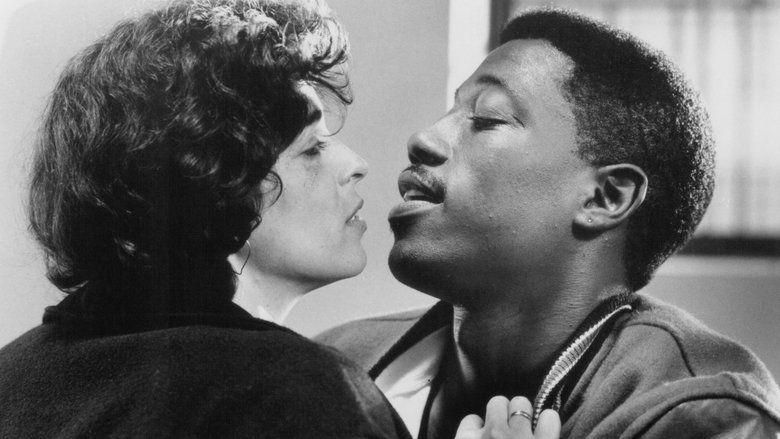
Jungle Fever (1991)
A successful and married black man contemplates having an affair with a white girl from work. He's quite rightly worried that the racial difference would make an already taboo relationship even worse.
Watch Trailer
Cast


Similar titles
Reviews
Flipper Purify (Wesley Snipes) is a black architect with growing recognition, aiming at becoming partner at his current firm. Married with child his wife Drew (Lonette McKee) and daughter Vera (Veronica Webb) are seemingly the apple of his eye. When given an assisrant of Italian roots, Angie Tucci (Annabella Sciorra), Flipper initially objects on racial grounds, opting for a black-skinned subordinate. These reservations soon come to pass, when working nights together they soon uncover a growing fascination with each other, despite their differing skin colours. This soon turns into a romance, which crosses racial boundaries, causing a stir in both neighbourhoods and making them outcasts from their families...American film in general still has racial issues. Seeing a mixed couple on screen is a strangely rare occurrence, despite an increase in Afroamerican actors on the front-line. Even when employed the norm is having non-mixed couples, as if to avoid inciting unpopular furore among both sides of the divide. The exceptions to the norm are few and far between, surprisingly most often introduced by non-American directors. Even less widespread is such mixed couples not being the core of the story told - a notable exception is "Things We Lost In the Fire" by Dane Susanne Bier, where Halle Berry and David Duchovny create a loving couple with race issues never even implied.This speaks volume why "Jungle Fever" and the issues touched remain poignantly important till this day - the concept of mixed race pairs is so innerly counter-cultural to the American society at large, even more so than in Europe or light years behind the formerly racial South Africa. Spike Lee therefore located a subject mine for a classic movie, which would stay in memory for its breakthrough content. However Spike Lee wouldn't be himself, if he hadn't resorted to some tricks of trade, flashing audiences with subplots, which do nothing but distort the core theme (Flipper's flailing career or an absolutely detrimental story about his brother the narcomaniac). Meanwhile the racial issues themselves get dragged down with overly preachy monologues or dialogues, finally delivering little in terms of a satisfying conclusion. Seemingly afraid of going the mile Spike Lee finally pulls up and offers a screeching happy ending, but somewhere within this feverish mixed racial love the context becomes diluted. Already permeating with an unmistakable style, patchy story lines and venturing camera shots, Spike Lee's trademarks came to fruition, but unfortunately with a movie being a far cry from "Do the Right Thing" or "The 25th Hour", proving to be a director renowned for a very uneven film career.
Spike Lee's "Jungle Fever" is an eye-opening introspection into the limits of that so-called melting pot sold by America as the epitome of tolerance and universalism... yet contradicted by the statistics and all the racial tension that prevailed in the early 90's. As a social commentary, the movie raises many important issues about interracial relationships in a less politically lauded tone than the iconic "Do The Right Thing", which is a wise choice for a movie mostly centered on human relationships.Through Stevie Wonder's titular song, "Jungle Fever" refers to the diagnosis of that strange mutual attraction between two persons from different races. The term strongly implies the idea of a relationship against Nature's law, if not a sickness, a deviation. And the central couple to deviate is Flipper, an ambitious architect, and Angie, his new secretary. He's Black, she's Italian. He lives in Harlem, she's from Benston Hurst, he's married with one daughter, she has three men, and two too many: her father (Frank Vincent), and her two brothers. Angie's doom is that she's young and single enough to be the overprotected sister, but mature enough to take care of the house. Angie dates Paulie, a shy and affable storekeeper (John Turturro) in a relationship that doesn't really ring true. Whatever is obviously lacking, Angie would find it in Flipper.Spike Lee's direction patiently depicts the growing attraction between Flipper and Angie. Interestingly, the first door to a growing intimacy is opened when they break the taboo of races and talk about it in the most casual way. And after that, we stop looking at the difference of skins, and pay more attention to the contents of their hearts. So they have sex, and no sex scene is sugarcoated in Spike Lee's film, not overdone either, but what is Spike Lee's point? To insist that it's only sexual like in adultery, or because of the 'Jungle Fever'? Whatever theory we believe in, the relationship would be wrong, but Lee cares less about pleasing us ethically than inviting us to examine the aftermath of that pivotal night where a Black man and a Italian (Caucasian) woman did it. And the way the relationship evolves could be perceived as bad writing on the surface, while it's only extremely well-written 'bad reactions'. For one thing, the adultery is less condemned than its interracial nature. Flipper's wife, Drew (Lonette McKee) is from a mixed couple, and always feared to be only one step in Flipper's attraction process toward light skinned women, until he'd finally go with a plain Caucasian. Flipper's denial might be sincere but then why did he ask his bosses to only hire African American women? Did he know he would automatically fall in love with a Caucasian? The ambiguity remains and is displayed from a different perspective during a dinner with Flipper's parents played by the veteran actors Ossie Davis, as a fanatic preacher, and Ruby Dee, a loving mother and devoted wife. Flipper's father reminds Angie that white women always sensed an exciting mix of fear and fascination toward Black men and this is what ultimately tarnished the purity of the race, by providing so many mixed ethnicities. While succeeding on the field of disturbing realism, this scene allows us to understand Flipper's background and the amount of pressure he and Angie would endure, Angie, almost beaten to death by her 'dishonored' father, is then coldly compared to a whore. The couple wouldn't survive this last display of hatred and rejection, and in a very thought-provoking approach from Spike Lee, Flipper breaks up with Angie with a very calculated arrogance by pretending it has never been love. In a way, he joined the cause of those who pretend it's all about black men seeing that white is right women-wise, and white girls seeing blacks as sexual supermen, Jungle Fever again. Flipper uses an obvious carapace to hide his own weaknesses. In many intimate scenes, he's the one lying beneath the shadow, while Angie's face shines under the window's light. She's genuinely in love with him while Flipper opts for a more convenient pragmatism. Again, no one is right or wrong, Flipper has many responsibilities and Angie's simply in need of a disinterested love, she's the victim of this relationship, as the one who lost the most, her 'honor', her boyfriend, and the man for which she took the risk to lose everything. The counterpoint of this failed relationship is Paulie's tender and more optimistic romance. Paulie who also grew up with an authoritarian fatherly figure (Anthonny Quinn) and endures the racist pressure of his entourage, but finally decides to date Ordyl, the woman who's always so nice to her, regardless of any skin consideration. But Flipper and Angie's relationship is less the core than the starting point of the analytic journey into the myths that surround sex, part-pride, part-doom, total pressure, marked by a great deal of hypocrisy and suspicion, due to the weight of history. Here comes the most poignant subplot involving the crack addiction of Flipper's brother, Gator, Samuel L. Jackson in an Oscar worthy performance. Gator's descent into self-destruction is the emotional pillar of the film allowing us to put Flipper's romance into perspective. There's more to worry about for the Black community, which in quest of its identity is torn between two unacceptable realities: degradation or obedience to the white man rules. Is 'Jungle Fever' the first step of that assimilation? The ending is a father's cry of despair for never seeing his daughter falling in that trap anyway. "Jungle Fever" works less as a romance than as realistic depiction of the racial myths poisoning the society. Through many secondary characters with an impressive level of depth and believability, we realize that most of them defines themselves through their ethnicity as pure survival instinct. When the world is a jungle, it can only inspire self-preservation.
Lots of hate and not much love is the feeling I get when looking this film up; ironic then that the idea of interracial relationships in 1990s America has much the same stance on the idea stick to what you know or else people who have long since died will be angry at you, oh and the current parent who hasn't died (the father in both cases) will either threaten to or indeed literally beat you senseless.I don't think Jungle Fever, directed by Spike Lee, is all that bad in fact I found it interesting, engaging and somewhat tragic which means I liked it; I liked it a lot. I think one of the primary reasons this film works is that it achieves something extremely difficult and that's being able to get across a narrative of love, loss and temptation all the time being able to put across and offer opinions on race and ethnicity whilst also being able to merge in a healthy and satisfying amount of humour which, oddly enough, only really comes along when the film is dealing with its 'tragedy' sub-plot involving Gator (Jackson). The idea behind the character is tragic but it is Jackson's presence and approach to the material that makes it humorous: a crack addict that turns up at the most inconvenient of times asking for money, often doing a little dance in order to get it; but he does not learn the wrong of his ways and that's the tragic thing.So you see, the fact that Spike Lee has created this universe for all these issues to be digested and be put across all the time keeping you interest with some individual acting performances, good music and a fair amount memorable dialogue moments is extremely impressive my favourite of which is Spike Lee himself portraying a character who goes up in extremities when he learns of an affair, the fact the wife doesn't know and then that the girl is actually white. Jungle Fever starts out in pretty humorous yet tragic circumstances, echoing the atmosphere to come for the rest of the film; the pre-film titles have road signs displaying things like 'drugs, left; crack, right' which is a damned if you do, damned if you don't idea that works amongst the upbeat music. It's this sort of juxtaposition in visuals that works and challenges the viewer as well as possibly being Lee getting across what life is like in these sorts of places 'No matter where you turn, you cannot escape certain failure'.So, to have the rather oddly named Flipper Purify (Snipes) as an architect who is living a good life with a great job with great prospects with a wonderful wife and kid gives us the sense he is an achiever but he cannot live in a district that is pleasant, so that 'tag' that you never escape the ghetto is present. Likewise, Flipper is a big cheese in his company but he must answer to two white yuppies ahead of him and when things get a little heated, it seems the two white men have defeated the hard working black character. But it is Flipper's own stupidity that sees him go on his journey of hell and self-discovery and all in the name of curiosity which is the film's only real flaw but I cannot hold it too much against it. This is a film in which everybody gets a bite of the cherry; the African-American characters in the film are people who are striving to survive (the credits suggesting the ghetto is a no win place suggests this) doing whatever means necessary no matter how high up you are (crack head or rich architect); Italians are people who perhaps come across as quite needlessly aggressive and yet are the sorts who hold onto values and friendships despite whatever situations arise they are also people who look out for their sisters.Then there are the women; in what is one of Jungle Fever's more remarkable scenes, a half dozen women sit around and consolidate Drew (McKee) as she comes to terms with the affair. It is remarkable because it shows women have a voice and they are voicing their opinions in a true-to life manner remarkable that Lee scripts this scene and shoots it not in a voyeuristic manner but one that lets us know how they feel; I wonder how many other films revolving around an male instigated affair would stop to include this scene? Jungle Fever is a film that has heart but it has brains to boot; there is another great scene when Frankie Botz (Badalucco) is being wound up over his girl and he slams people who are Aryan, blaming Hollywood (another Spike Lee scripted dig?) for it but this is right after heart of gold Italian Paulie Carbone (Turturro) points out that Italian's several decades ago who paid the blacks equal wages were hung for doing so; this echoes the overall theme of the film in a single scene, that being that "it is the 1990s, things like this happen" says Debi Mazar's character and that the disapproving parents should not be too affected by something that supposedly insults tradition.Jungle Fever is not about 'x' is black and shouldn't date 'y' because they're white; if anything it's about the reason to stick with your partner: if Flipper was curious as to what 'white' would've been like, surely that echoes compliment to Drew because he doesn't consider he so; even though she has been bullied over the light tone of her skin. Spike Lee has made something here that is epic and intriguing; tragic and yet funny at times. This is a modern piece trying to push out what's wrong and what's right: 'stay with partner' is better than 'stay with race' but that doesn't mean you have to choose the latter if you cannot keep the former.
Flipper Purify is a successful architect with a beautiful wife and a smart young daughter back at his apartment. When he gets a new temp in to work alongside him he is not pleased that she is white but her hard work impresses him. Working late one night, chatting becomes a connection which becomes flirting which becomes sex. Their affair continues even as Flipper quits his job to branch out alone. However his life is thrown into chaos when his wife Drew finds out.The opening credits are catchy and the material is just the sort of racial issue that Spike Lee made his name but somehow the film itself really failed to catch my imagination or hold my attention. The central plot is simple enough but Lee fills it out with characters, debate and a couple of subplots but yet somehow doesn't manage to pull it all together into one compelling film. Of course those that like Spike Lee know that even when he is at his most average he can still make an interesting film. And so it is here because the film does have plenty of interesting scenes but it is the narrative and formulation of his point where it fails to come off. In his defence Lee has written some convincingly real characters with unfortunately real attitudes but by leaving these people mostly unchallenged to deliver their opinions he allows two things to happen. Firstly the film feels like a series of disjointed conversations most of which are interesting enough to listen to but don't a total film make.Secondly, and more importantly, Lee appears to be in agreement with some of his characters that mixed race relationships are not a good idea. If this is not his opinion then he has done a poor job in putting his thoughts across. If he is in agreement then he has done a poor job in presenting this point in a coherent and convincing fashion. Instead it seems like the racists have won which is maybe is his point but if so yet again he hasn't done a good job of putting it across. In fact thinking about it, his point probably is that it all isn't worth the effort but, like I say, it isn't very well delivered and a lot of the ideas are half-cooked. The cast make it well worth a look regardless thanks to Lee's usual skill in assembling his actors. Snipes has massively fallen from grace in regards his career and his personal life but here he is pretty good. The material is just a little beyond his range but he does the basics well. Sciorra is better and works well with him. Lee is Lee while McKee is rather wasted with her simplistic race rage. Quinn is a nice touch in support while Turturro is as good as I have come to expect from him. Davis and Dee are good but they exist in another film, albeit the drugs subplot is interesting and both Jackson and Berry are impressive but it doesn't really fit. Lee's direction is his usual style but his use of soundtrack is weak the tunes themselves are good but he doesn't put them across the film with any reason or sense of meaning.Overall then an fitfully interesting film as is usually the way with Lee but one that failed to come together or deliver a convincing central message. The depressing message that does come across isn't that well made and as a result isn't as thought provoking as it should have been. The casting is interesting though and the performances mostly do as required in the many good individual scenes. Famous but not as good as the names attached would make you hope.


